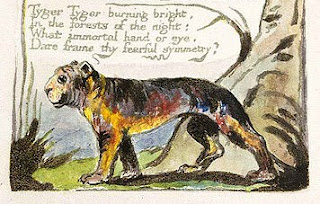Image from Biography.Com.
From the book Light
from Many Lamps by Lillian Eichler Watson
(1951):
All through the
long, long night he sat by the bedside, holding her hand. Sometimes she
whispered his name, and he bent close to listen, Always it was some word of
hope or cheer, or a gentle smile. Then she would doze again; and he would
watch, and pray.
Robert Browning
had brought his wife to Italy, hoping a change of scene and climate would
improve her health. And she had improved,
so much that he had established a home for her in Florence. Here they had spent
their happiest years. Here they had lived as in a dream, thinking as one and
feeling as one, planning and writing their poetry. Here they had lived a life
of rich contentment.
Until now… Now
he knew the idyl was over, the dream was spent. Elizabeth was dying. Though
every fiber of him cried denial, he knew the end was near. The doctor had told
him what his heart already knew.
He thought of
the closing lines of one of her poems, lines he had always loved….
I love thee with the breath,Smiles, tears, of all my life!—and, if God choose,I shall but love thee better after death!
...The first wan
light of the new day was just beginning to come through the window when she
sighed and said, “It is beautiful!” Then, suddenly, she was gone.
Robert Browning
was grief-stricken by his wife’s death. For some time he couldn’t write; but
when at last he did, there flowed from his pen a passionate defiance of death,
an exultant challenge.
ProspiceBy Robert BrowningFear death?--to feel the fog in my throat,The mist in my face,When the snows begin, and the blasts denoteI am nearing the place,The power of the night, the press of the storm,The post of the foe;Where he stands, the Arch Fear in a visible form,Yet the strong man must go:For the journey is done and the summit attained,And the barriers fall,Though a battle's to fight ere a guerdon be gained,The reward of it all.I was ever a fighter, so--one fight more.The best and the last!I would hate that death bandaged my eyes, and forebore,And bade me creep past.No! let me taste the whole of it, fare like my peersThe heroes of old,Bear the brunt, in a minute pay glad life's arrearsOf pain, darkness, and cold.For sudden the worst turns the best to the brave,The black minute's at end.And the elements' rage, the fiend-voices that raveShall dwindle, shall blend,Shall change, shall become first a peace out of pain,Then a light, then thy breast,O thou soul of my soul! I shall clasp thee again,And with God be the rest!
Elizabeth
Barrett Browning died in June, 1861. It was in the autumn of the same years
that Robert Browning, out of the depths of his grief and loneliness, wrote
“Prospice” [Look Forward], one of his most famous and inspiring poems.


.jpg)

